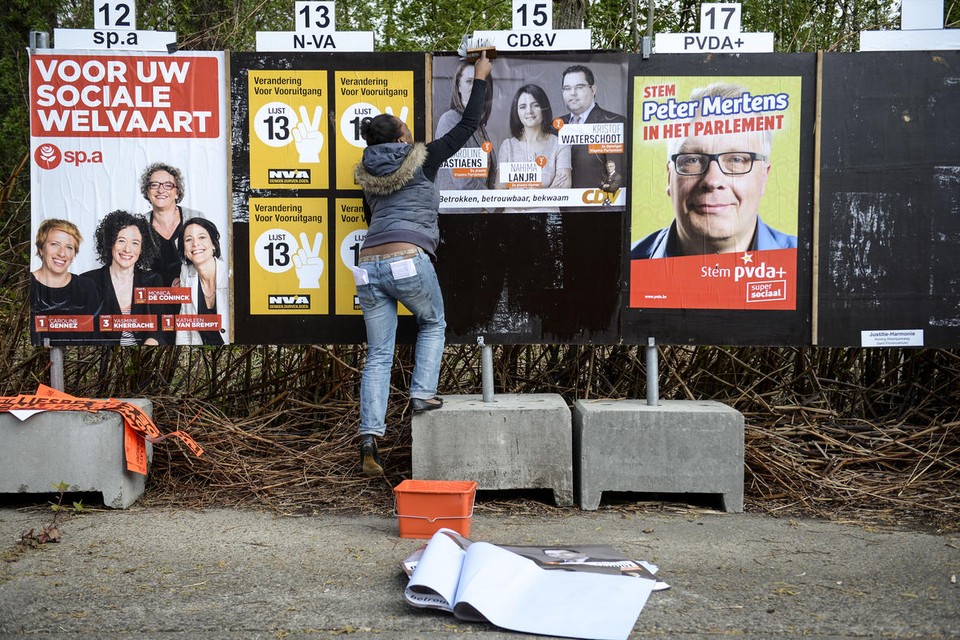Despite widespread criticism and EU efforts to rein in personalised campaigns, Belgian parties are spending more on social media adverts than last year, with predictions being made that the €6 million mark could be surpassed.
Belgian political parties have spent €4.9 million on adverts with Meta, on platforms including Facebook and Instagram between January and the end of October this year, De Tijd reported using the latest figures from AdLens.
The numbers already match the record set in the entire of 2022, with two months to go.
As has been the case in the past, Flemish independence parties, the right-wing N-VA and the far-right Vlaams Belang, are once again the biggest spenders when it comes to investing in online ads, with nearly €1.5 million and almost €1.4 million respectively funnelled into Meta in the first ten months of this year.
In the past three months alone, Vlaams Belang and the N-VA spent €345,000 and €334,000 respectively on Facebook ads. Many of the posts are hyper-localised and target specific Flemish cities and municipalities.
Expenditure per party on meta in the first ten months of 2023.
Adlens already reported at the start of last month that many campaigns had been increasing their spending between August and September. N-VA increased its spending by 96% from €80,183 to €157,361, while the left-wing PVDA ramped up spending by no less than 296% from €20,509 to €81,301.
Overall, the PVDA/PTB (€662,722) was the third largest spender this year, followed by Open VLD (€303,173), Vooruit (€290,626) and CD&V (€272,828). Parties spending less were Groen (€199,367), MR (€114,640), and Les Engagés (€110,036), with Ecolo (€53,460), PS (€36,605), and DéFi (€12,451).
Rising controversy
Backed by Belgian party financing, the Flemish parties have been among the biggest spenders in Europe and globally, even outside of campaign periods. The trend started after Vlaams Belang, who in the 2019 elections was the only party to place large-scale paid ads on Facebook, yielded very successful electoral results.
To put these amounts in context: the Republican presidential candidates Donald Trump and Ron DeSantis in the US, with a voters’ market more than 50 times larger, spent €480,000 and €350,000 during the same period, according to international research group WhoTargetsMe.
Experts predict that the spending drive by Belgian parties will increase ahead of the 2024 elections and that the €6 million mark will be reached by the end of this year, despite the fact that scandals surrounding the misuse of private data, resulting in parties in other countries such as the Netherlands decreasing their spending on online ads.
Related News
- 'A political stunt': Confusion in Brussels over Italy-Albania migrant deal
- 'Protecting our elections': EU wants stricter rules for online political ads
- Vlaams Belang breaks political ad spending record ahead of Flanders Day
At the European level, political online advertising has come under fire. On Tuesday this week, EU legislators reached a provisional deal on new rules to make election and referenda campaigns more transparent and resistant to interference. The new rules would regulate (online) political ads, while also providing a framework for political actors to advertise more easily across the EU.
Additionally, last week, the European privacy watchdog (European Data Protection Board) demanded that Meta completely stop sending personalised ads to its users. The social media platforms collect various user information, such as age, location, education and hobbies, as well as monitor the posts they view, which can be used for highly personalised ads.

